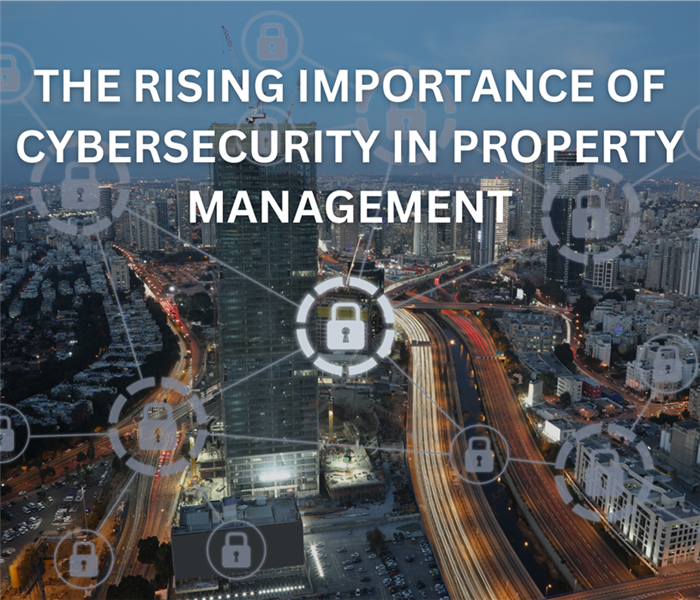The Rising Importance of Cybersecurity in Property Management
8/23/2024 (Permalink)
The Rising Importance of Cybersecurity in Property Management
As property management increasingly integrates digital tools and cloud-based solutions, the need for robust cybersecurity measures has become more critical than ever. With tenant information, financial data, and property details stored online, property managers must prioritize safeguarding this sensitive information against cyber threats. Understanding the risks and implementing best practices can help protect your business and the tenants who rely on you.
Why Cybersecurity Matters in Property Management
The shift towards digitalization in property management brings numerous benefits, such as streamlined processes, enhanced communication, and better access to data. However, it also introduces new vulnerabilities. Cyberattacks, data breaches, and unauthorized access to sensitive information can result in significant financial losses, legal liabilities, and reputational damage. For property managers, the stakes are particularly high due to the trust placed in them by tenants and property owners to protect their data.
Common Cyber Threats in Property Management
Phishing Attacks: Cybercriminals often use phishing emails to trick property managers or staff into revealing sensitive information, such as login credentials or financial data. These emails can appear legitimate, making them difficult to spot.
Ransomware: Ransomware is a type of malware that encrypts data, making it inaccessible until a ransom is paid. For property management companies, this could mean losing access to important tenant records, financial documents, and more.
Data Breaches: Unauthorized access to cloud-based systems can lead to data breaches, where hackers steal sensitive information. This can include tenant personal information, financial records, and property details.
Weak Passwords: Many cyberattacks succeed due to weak or reused passwords. Property managers often handle multiple accounts and systems, increasing the risk if proper password protocols are not followed.
Best Practices for Enhancing Cybersecurity
To mitigate these risks, property managers should adopt a proactive approach to cybersecurity. Here are some best practices to consider:
Educate Your Team: Regular training on cybersecurity threats and how to recognize them is essential. Ensure that all staff members understand the importance of not clicking on suspicious links, recognizing phishing attempts, and reporting any unusual activity.
Use Strong, Unique Passwords: Implement a password management system that encourages the use of strong, unique passwords for all accounts. Two-factor authentication (2FA) adds an extra layer of security.
Regularly Update Software: Ensure that all digital tools and software are regularly updated with the latest security patches. Outdated software can have vulnerabilities that hackers can exploit.
Encrypt Sensitive Data: Encrypting data, both in transit and at rest, ensures that even if it is intercepted, it cannot be easily accessed or read by unauthorized parties.
Implement Access Controls: Limit access to sensitive information based on the role of each team member. Not everyone needs access to all data, and minimizing access reduces the risk of insider threats.
Backup Data Regularly: Regular data backups can help you recover quickly in the event of a ransomware attack or other data loss incidents. Ensure that backups are stored securely and tested regularly.
Monitor Systems Continuously: Use cybersecurity tools to continuously monitor your systems for unusual activity or potential breaches. Early detection can prevent a small issue from becoming a major problem.
Cybersecurity: An Ongoing Commitment
Cybersecurity is not a one-time effort but an ongoing commitment to protecting your property management operations. By staying informed about the latest threats and adopting best practices, property managers can create a safer environment for their business, tenants, and property owners.





 24/7 Emergency Service
24/7 Emergency Service

